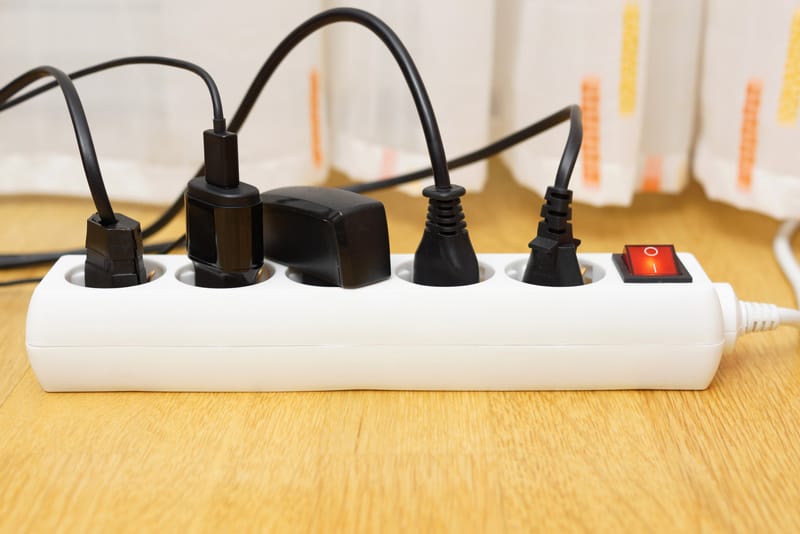How To Safeguard Your Electronics From A Power Outage
You’re working on an important document on your computer when all of a sudden – darkness. After a second or two of bewilderment, you realize that the power’s gone out, and worse, your computer shut down without saving your work. But never mind your work; are your electronics safe? Here are some steps you can take to safeguard your electronics from a power outage.
Use Surge Protectors to Secure Your Electronics from the Inevitable
You never know when power outages may hit, and along with them may come another danger: power surges. The difference? Whereas with power outages you lose power, with power surges, an inappropriate amount of power is pumped back into your home, potentially frying your electronics. To protect against this, purchase a surge protector to keep your electronics plugged into. Surge protectors look like regular power strips but have built-in mechanisms to protect against too much power reaching your electronics. Keep in mind, however, that surge protectors may not be 100 percent effective against all power surges.
Buy an Uninterruptible Power Supply to Give Yourself Some Leeway
 An uninterruptible power supply (or UPS) does just what its name says: it provides power in the event of a power outage. While a UPS will give you only a few minutes of power after a power outage, it should be enough time to save your progress before you shut down your device.
An uninterruptible power supply (or UPS) does just what its name says: it provides power in the event of a power outage. While a UPS will give you only a few minutes of power after a power outage, it should be enough time to save your progress before you shut down your device.
Shut Down Your Electronics and Unplug Them
Once you realize that a power outage has hit your home, you’ll want to power down your electronics and unplug them as soon as possible, just in case a power surge hits. Although you might keep your electronics plugged into a surge protector, the power surge may still be too powerful and make its way to your electronics. To keep your electronics undoubtedly safe, unplug them from the walls and keep them unplugged until power is restored.
Back Up Your Data
Despite your best efforts, there’s still a chance that a power outage could end up permanently damaging your electronics. If you keep important information on a computer, you should strongly consider backing up your data just in case your device gets fried. For maximum security, stick to the 3-2-1 rule of data backup. This calls for having three copies of important files on two different media types, such as a hard drive and CD. Finally, one copy should be stored in another location, such as at the office or in the cloud. Of course, not all files are going to need the 3-2-1 treatment, but for financial records and irreplaceable photos, this will ensure that you never lose them despite any power problems.
You’ll need to invest a little money to keep your electronics completely safe from a power outage. Although a surge protector and UPS will cost you, the price of both combined is probably cheaper than the electronics you want to protect. You may not see a return on your investment right away or even at all. Think of it like an insurance policy – when the time comes, you’ll be happy you’re prepared.








